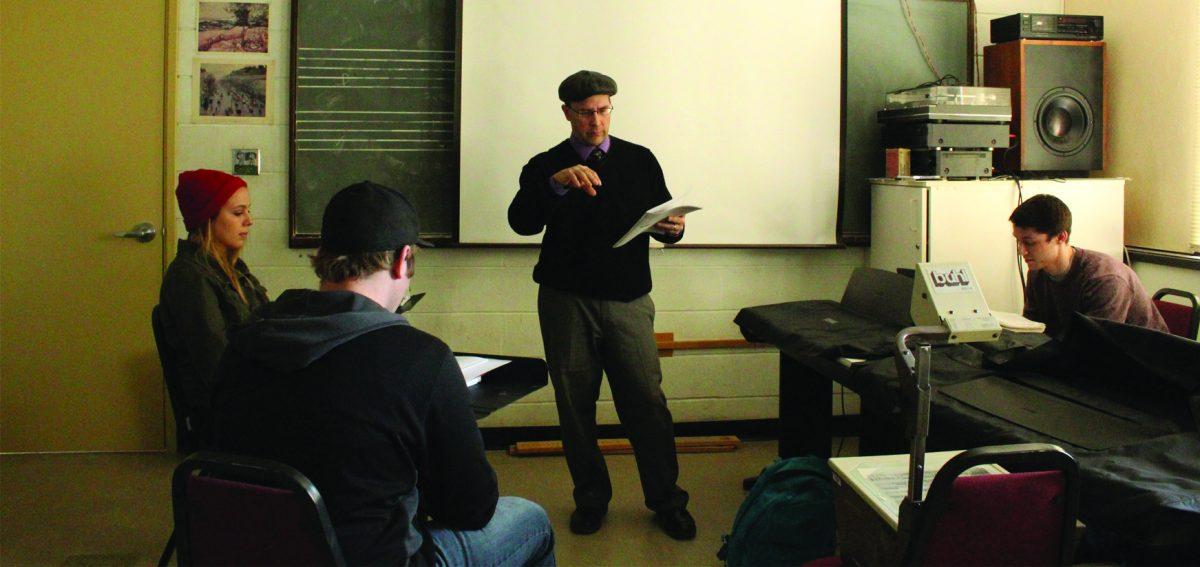From Feb. 13–15, the Central Oregon Symphony held a series of concerts in the auditorium of Bend Senior High School. This concert series showcased winners of the Young Artist Competition, a local music competition for accomplished musicians under the age of 19.
In order to properly demonstrate the abilities of these young musicians, this concert consisted mostly of concertos: pieces of music that are specifically composed to incorporate a soloist as the lead part.
The Central Oregon Symphony opened with “Totentanz,” a piano concerto by Franz Liszt, featuring Anthony Zheng, the third-place winner. “Totentanz” was, in my eyes, as much of a showcase of Zheng’s talents as it was a clash between the melancholically emotional piano and the stern, disciplined, sensible orchestra.
Following the “Totentanz,” Michael Gesme, conductor of the Central Oregon Symphony, introduced himself to the audience. He acquainted the concertgoers with the next composition, a suite from “The Plow that Broke the Plains” by Virgil Thomson. The composition paints the timeline of America with sound, used for a 1936 documentary of the same name. The suite consists of several pieces: “Prelude,” “Pastorale (Grass),” “Cattle,” “Blues (Speculation),” “Drought” and “Devastation.”
Unfortunately, part of “Pastorale (Grass)” was excluded in the performance on Feb. 14 due to the absence of an oboe soloist who was sick. Aside from the missing context of how that section fit into the whole, the performance of “The Plow that Broke the Plains” was excellent.
“Cattle” conjures imagery of frontiersmen on the plains, venturing into the unknown west. “Blues (Speculation)” is a musical visualization of the Roaring Twenties. “Drought” puts into musical terms the tragedy of the stock market crash on Oct 24, 1929, and “Devastation” is the musical depiction of the Dust Bowl.
Next was Sergei Prokofiev’s “Piano Concerto No. 3 in C Major, Op. 26: I. Andante; Allegro,” with an outstanding piano performance by second-place winner Christopher Yoon. Yoon’s meticulous playing was complemented by the orchestra members who tapped the bodies of their instruments with their bows to create percussive effects.
“Quiet City” by Aaron Copland followed, with (adult) soloists Amy Kolb on English horn and Jeff Briggs on trumpet. In succession with “Quiet City” was another Virgil Thomson composition, “The River,” a pastiche of Americana favorites, also composed for a documentary.
The first movement of “Quit City” is “The Old South,” which featured several whimsical tweaks of familiar sounds, including “Go Tell Aunt Rhody,” “My Shepherd Will Supply My Need” and, from what I heard, a revision of “If You’re Happy and You Know It (Clap Your Hands).” The second movement is “Industrial Expansion in the Mississippi Valley,” which puts into aural terms the horror of industrialization for the titular river that one needs not name for any matter of effect.
The final performance of the night was Henri Wieniawski’s “Violin Concerto No. 1 in F Sharp Minor, Op. 14: I. Allegro moderato,” with an outstanding violin showcase by John Fawcett, first-place winner in the Young Artist Competition. The 15-year-old violinist played masterfully with an expression of intense focus and ended the night on both a metaphorical and literal high note.
After the show, I had the opportunity to speak with Gesme about his thoughts on the performance. He told me that he was proud of how well the show went, aside from the absence of the oboist. He believes that each of the soloists were outstanding, and he looks forward to working with them again. As for his selection, he chose the Thomson pieces because they were pieces people were not immediately familiar with, but at the same time were not too alien for the audience.
Congratulations to the orchestra for a job well done and good luck in their future endeavors.
Matthew Iler | The Broadside [email protected]








